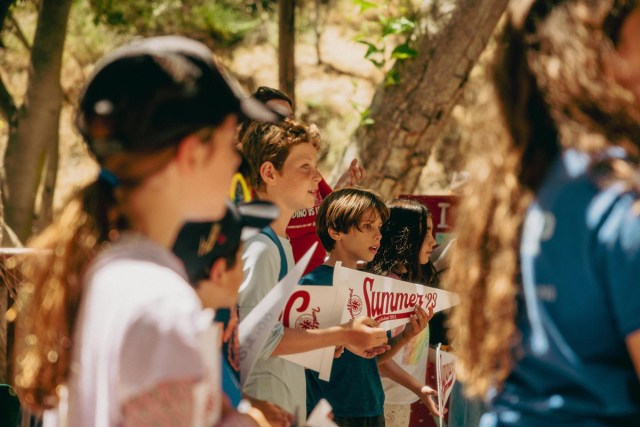Sending your kids to camp is a decision filled with anticipation, excitement, and a touch of parental anxiety. As a camp owner and mom of two campers, I try to remind other parents about the fantastic choices they’ve made that will contribute to years of joy and lasting memories.
Here are seven summer camp tips to ease the process and ensure both you and your child have a positive experience.
1. You’ve made a great choice
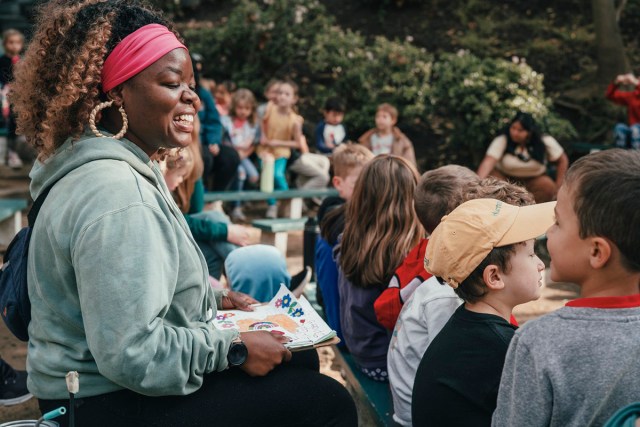
Your decision to send your child to camp is not just commendable; it’s a testament to your understanding of the benefits that come with the camp experience. Embrace the fact that they might be stepping out of their comfort zone, and that’s entirely okay. Trust your decision, knowing that the discomfort will likely transform into valuable life lessons and cherished memories.
2. Share your calm, not your chaos
If you’re feeling distressed, remind yourself that you are the adult in the situation—with your calm leadership, you are setting your kids up for an experience that will lead to a lifetime of great camp memories. Remember that there’s nothing to worry about, and whenever you are stressed and frazzled, try to stay composed, as your kids can feel the same, too! By calming down and approaching camp with a relaxed nature, you are guiding your campers toward a much more successful experience.
3. Embrace the discomfort
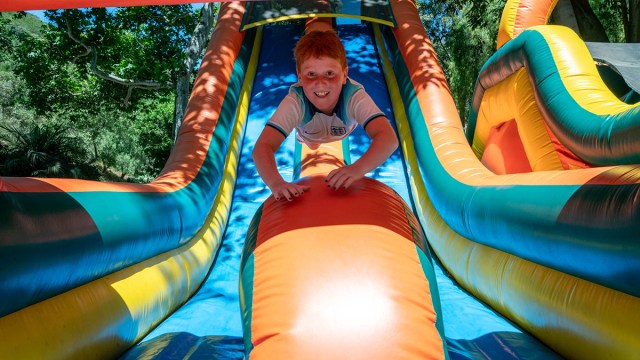
Part of being human is being uncomfortable. That means that being human at camp will also come with being uncomfortable. Encourage your child to embrace discomfort as an integral part of their growth. It’s normal for them to feel a bit uneasy initially, but this discomfort will lead to personal development, resilience, and increased self-confidence.
Keep in mind that moments of discomfort are stepping stones to a more confident and adaptable child. These uneasy feelings might come from social situations that stretch their interpersonal skills, or they might be physical discomforts. When you attend a traditional camp like Tumbleweed Day Camp, campers are outside (a.k.a sometimes hot in the sun!), in nature (a.k.a there will definitely be bugs!), playing all day (a.k.a getting dirty and sweaty!), and sometimes this is an occurrence for weeks on end (a.k.a. they will be hungry and tired!). Being uncomfortable is okay—it’s not something that needs to be solved.
4. Building friendships takes time
In a world obsessed with instant everything, it’s easy to forget that building solid friendships takes time…even at camp. Avoid putting unnecessary pressure on your child by constantly asking about their friendships, favorite activities, or eagerness to return to camp.
Skip the 20 questions about their new BFFs and let the friendships brew naturally. Instead, relish the experience with them, allowing friendships to naturally unfold. You can do this by joining the fun, soaking in their experiences, and trusting that these friendships will be the cherry on top of your kiddo’s camp adventure. Trust that these bonds will strengthen over time, contributing to your child’s social development.
5. Starting camp is like starting other experiences
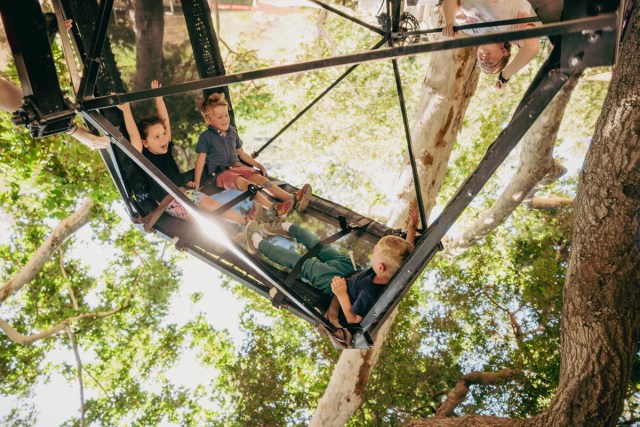
You know your camper. If they have a hard time with separation at school, they probably will at camp, too. Remind yourself that even though camp is an awesome, magical place, things are still pretty predictable. If your camper normally comes home after school and doesn’t say much about their day, expect that from camp as well.
At Tumbleweed, it’s really helpful to know about these things ahead of time. We encourage parents to give us a call if they are worried about challenges their campers are having and we can come up with a plan together.
6. Communication is key
Feeling uncertain or having questions about your child’s camp experience is completely normal. One way to set yourself up for success is to make sure you read through any information that the camp sends out and review their values and practices. At Tumbleweed, we know that parents who read our emails and call to chat before camp have a much better experience than those who stumble into camp on day one.
Also, keep in mind that you can always reach out to camp staff. Whether you have concerns, expectations, or simply need clarification on certain aspects, don’t hesitate to contact the camp director or relevant personnel. Remember to not wait until after the camp session or the summer to bring something up; it’s harder for camp staff to help solve your problem weeks or months after something occurred.
7. Let camp be a no-parent zone
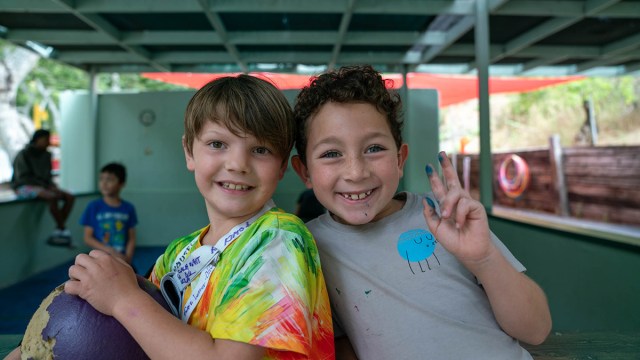
Camp offers a unique environment for kids to explore, discover, and cultivate independence. Remind yourself that this is a no-parent zone, a space where your child can grow, have fun, and explore without your direct involvement. Resist the urge to overly monitor their experiences. Trust the camp staff, the structured activities, and the learning opportunities that come with a little autonomy.
And lastly, remember that you’ve got this! Sending your kids to camp is an incredible gift—a chance for them to create lifelong memories, forge meaningful connections, and develop essential life skills. By reminding yourself of these key points, you’ll not only ease the transition for your child but also allow them to fully embrace the enriching experience that camp has to offer.
Happy camping!
